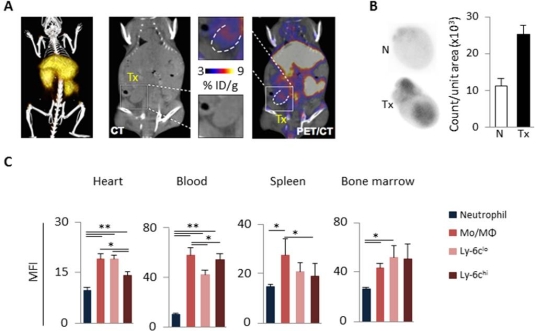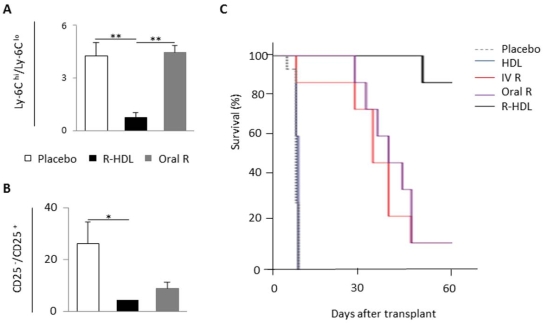Rapamycin Nanotherapy Delays Heart Transplant Rejection.
1Translational and Molecular Imaging Institute, Icahn School of Medicine at Mount Sinai, New York
2Oncological Sciences, Icahn School of Medicine at Mount Sinai, New York
3Radiology, Memorial Sloan-Kettering Cancer Center, New York
4Center for Systems Biology, Massachusetts General Hospital and Harvard Medical School, Boston.
Meeting: 2016 American Transplant Congress
Abstract number: 538
Keywords: Heart/lung transplantation, Inflammation, Rejection, Tolerance
Session Information
Session Name: Concurrent Session: Novel Approaches and Potential Targets for Promoting Tolerance: Animal Models
Session Type: Concurrent Session
Date: Tuesday, June 14, 2016
Session Time: 4:30pm-6:00pm
 Presentation Time: 4:30pm-4:42pm
Presentation Time: 4:30pm-4:42pm
Location: Room 310
Background:
In patients, allograft survival requires a cocktail of immunosuppressive drugs, while experimentally antibodies targeting the innate immune system have been shown to induce long-term tolerance, with severe side effects. We here induced long-term tolerance by nanomedicine delivery of rapamycin to myeloid cells.
Methods:
We developed a hybrid nanoparticle encapsulating rapamycin (R-HDL), which has inherent affinity for innate immune cells. In a mouse allogeneic heart transplantation model, we applied this nanotherapy using a regimen involving 3 intravenous tail vein injections of 5 mg/Kg rapamycin during the first week. Using a combination of radiolabeling, in vivo PET-CT imaging and flow cytometry, we evaluated allograft and cellular specificity. Subsequently, the innate immune system's response and allograft survival were extensively monitored.
Results:
R-HDL nanoparticles, ~30 nm in diameter, had a high rapamycin encapsulation efficiency of ~65%. Radiolabeled R-HDL was observed to specifically accumulate in the transplanted heart and to be mainly associated with myeloid cells. 
We showed in the transplanted heart, a significant reduction of Ly-6Chi / Ly-6Clow as well as CD25– / CD25+ cells. Most excitingly, our nanomedicine treatment resulted in a dramatic enhancement of allograft survival. 
Conclusion:
We here presented a novel nanomedicine treatment paradigm to redirect rapamycin to innate immune cells and induce long-term allograft survival.
CITATION INFORMATION: Braza M, Lameijer M, Perez-Medina C, Reiner T, Nahrendorf M, Fayad Z, Duivenvoorden R, Ochando J, Mulder W. Rapamycin Nanotherapy Delays Heart Transplant Rejection. Am J Transplant. 2016;16 (suppl 3).
To cite this abstract in AMA style:
Braza M, Lameijer M, Perez-Medina C, Reiner T, Nahrendorf M, Fayad Z, Duivenvoorden R, Ochando J, Mulder W. Rapamycin Nanotherapy Delays Heart Transplant Rejection. [abstract]. Am J Transplant. 2016; 16 (suppl 3). https://atcmeetingabstracts.com/abstract/rapamycin-nanotherapy-delays-heart-transplant-rejection/. Accessed February 27, 2026.« Back to 2016 American Transplant Congress
